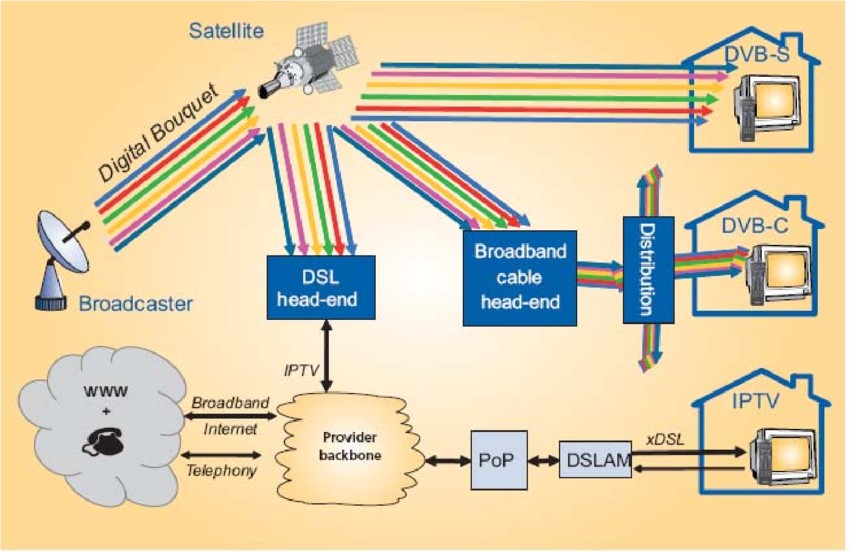
The media consumption map is shifting and IPTV has risen to the plate as a formidable challenger to cable TV. Due to the need for more flexibility, affordability and choice IPTV is gradually being accepted as a better solution. AtlasProOnTV, an IPTV service provider company, provides some important information about this change and shows how IPTV is set to change the way people watch television.
The Rise of IPTV
The emergence of IPTV is a new advancement in the delivery of television content. IPTV liberates itself from the constraints of cable structures by using internet protocols to stream TV shows and movies. This shift is not only more flexible but also has the added benefit of making content accessible across multiple devices. IPTV helps you to access your favorite shows and channels whether you are at home watching it on your smart TV, or even on the go using your Smartphone.
The flexibility of IPTV is not limited to compatibility with devices only. The flexibility of the service means that there is more control in terms of what the viewer can watch. Audiences can no longer be restricted to specific broadcasting hours and can watch their favorite programs at their own convenience. This on-demand feature is accompanied by live streaming features, which makes it even better for the users. Furthermore, IPTV uses the internet and this makes the delivery of content to be across the world and this is something that cable TV cannot achieve.
While the last benefit of IPTV is its ability to be easily combined with other digital services and platforms—enhancing usability with features like interactive apps, social network links, and enhanced search capabilities—there is also a setback for IPTV. This setback could involve challenges in seamless integration across diverse platforms or maintaining consistent performance with these added features. Despite this, these advancements significantly enhance the experience of watching programs, making IPTV suitable for a modern society that heavily relies on technology.
Therefore, the increase in IPTV is a new, flexible, and personalized way of watching television. The opportunity to deliver a wide range of programming on various platforms, coupled with the benefits of time-shifted and Internet-based delivery of content, makes IPTV a strong competitor to cable TV.
IPTV Advantages over Cable TV
Cost-Effectiveness
Another strong factor that supports the transition to IPTV is the cost efficiency of this technology. Cable TV subscriptions may also be costly, which involves long-term contracts and charges for individual channels. On the other hand, IPTV services such as AtlasProOnTV have different offers at reasonable prices and sometimes do not require the signing of contracts and exclusivity. This affordability enables the consumer to choose the subscription services that best meets their needs and income.
Content Variety and Flexibility
IPTV services offer a large number of channels and VOD content to meet the needs of viewers with different tastes. For example, AtlasProOnTV has an extensive list of global channels, sports, movies, and TV shows so that you will find something you like. This wide range of content is often not available from conventional cable operators because of these regional and licensing constraints.
Superior Quality and Reliability
IPTV can deliver better quality than cable TV with high-definition (HD) and even ultra-high-definition (UHD) video, greatly enhancing the Internet experience for users. With a fast internet connection, one is able to watch their favorite shows without interruptions caused by signal interferences or restricted bandwidth, issues often encountered with cable. AtlasProOnTV guarantees a superior Internet Experience by using the latest technologies and reliable servers to ensure stable streaming and high-quality content delivery.
On-Demand Viewing and Time-Shifting
IPTV services are particularly effective for on-demand services and time shift services. Television programs and films can be viewed whenever the viewer wants and in any manner they want such as stopping, rewinding or fast forwarding. This is far more advantageous than cable television, which generally remains bound by set schedules of programming. AtlasProOnTV builds on this by having a clear navigation and a large selection of videos available on-demand.
Future Trends in IPTV
The future of IPTV looks promising, with several trends set to shape its evolution: The future of IPTV looks promising, with several trends set to shape its evolution:
Smart Home Integration
IPTV services are expected to be compatible with smart home devices as they become increasingly common in households. The use of voice commands for the controls, customized content delivery, and compatibility with home automation systems will make IPTV a key component of the smart home.
Enhanced Interactivity and Personalization
The use of advanced AI and machine learning algorithms will help IPTV services to personalize the content to suit the preferences of the viewers and their habits. Such interactivity and personalization will make the experience of watching IPTV more enjoyable and fulfilling than simply watching cable TV.
Expansion of 5G Networks
The expansion of 5G networks will greatly enhance the quality and availability of IPTV services. Combined with improved internet connection provided by 5G, IPTV will also improve the quality of the stream and its stability, even when the viewer is on the move. This advancement will make IPTV an even more attractive option for consumers who want more flexibility and access to quality content.
Conclusion
IPTV is sure to become the market leader in the television industry as it presents numerous benefits over cable television. Thanks to its affordability, the vast amount of content available, the enhanced quality, and the high level of adaptability, IPTV answers to the needs of the audience. AtlasProOnTV enshrines these advantages, offering a broad and effective IPTV service that demonstrates the possibilities of this technology. Despite the fact that the switch from cable to IPTV may be gradual, the outlooks and consumers’ tendencies suggest that IPTV can be the future of television.
